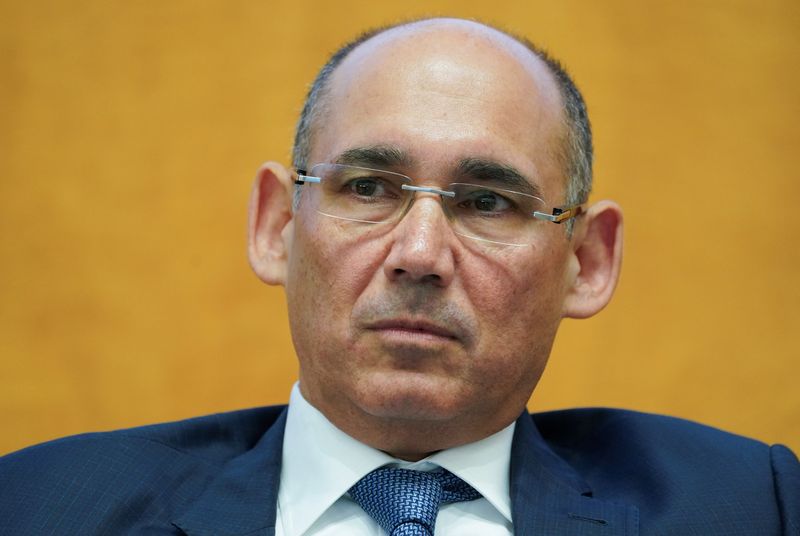
© Reuters. SUBMIT PICTURE: Bank of Israel Guv Amir Yaron listens to remarks on “Monetary Policy Obstacles in an International Economy” throughout the worldwide Monetary Fund’s (IMF) yearly research study conference on “Worldwide Connection” in Washington, U.S., November 9, 20
By Steven Scheer and Ari Rabinovitch
JERUSALEM (Reuters) -Bank of Israel Guv Amir Yaron stated on Sunday the nation’s economy was strong and would recuperate from the effect of the war, however gotten in touch with the federal government to deal with concerns raised by Moody’s (NYSE:-RRB- after the firm devalued Israel’s sovereign credit score.
To enhance self-confidence of markets and scores business in Israel, it was essential for “the federal government and the Knesset act to deal with the financial concerns raised in the report,” Yaron stated.
” We understood how to recuperate from hard times in the past and rapidly go back to success, and the Israeli economy has the strength to guarantee that this will hold true this time too,” he stated.
Yaron, considering that the Palestinian Islamist group Hamas’ Oct. 7 massacre of mainly civilians in Israel, has actually advised the federal government to keep financial discipline and trim costs on products not associated with Israel’s reprisals versus the group in Gaza.
In the first-ever downgrade for Israel, Moody’s cut the nation score to “A2,” 5 notches above financial investment grade, from A1 on Friday, and kept its credit outlook at unfavorable, suggesting an additional downgrade is possible.
Moody’s mentioned product political and financial threats from the war, including “Israel’s deficit spending will be considerably bigger than anticipated before the dispute.”
The downgrade, if lengthened or if it results in even more such relocations, would raise loaning expenses for Israel and might cause budget plan cuts and tax walkings to keep the deficit spending from spiraling out of control.
Israel’s debt-to-GDP ratio, Moody’s kept in mind, looked most likely to peak at 67% by 2025, versus 62.1% in 2023.
Still, that ratio has actually been much greater in the past throughout durations of recessions for Israel, however “there was never ever any hold-up in the federal government’s financial obligation payments,” Yaron stated.
Last month, S&P Rankings informed Reuters it might decrease Israel’s credit score if the war with Hamas broadens to other fronts.
Legislators recently offered preliminary approval to a modified 2024 state budget plan that included 10s of billions of shekels to fund the war and compensate those impacted, in addition to an increase in the deficit spending this year to 6.6% of GDP from 2.25%.
Prime Minister Benjamin Netanyahu on Friday responded to Moody’s carry on Friday, stating “the score will return up as quickly as we win the war – and we will win.”